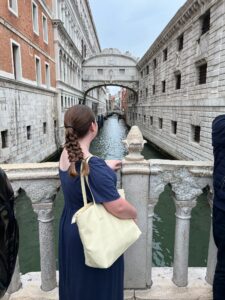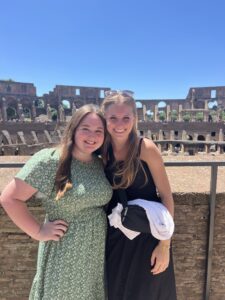Growing up, the phrase “History repeats itself” appears to be said in every history class, repeated many times throughout the years. This repetition has led the term to be thought of as a cliché, but since traveling abroad and learning about Global Leadership, I have learned of its truth first hand.
One of things that stands in the way of Global Leadership is ethnocentrism, the idea that your culture is superior to others. Whether you are aware of it or not, it is this idea that has many Americans thinking that we invented many progressive policies, such as democracy, when in fact, these were practiced long before the New World was discovered. Learning the history of the ancient world powers, such as the Greeks and Romans, allows future global leaders to understand not only the origins of successful public policy, but also the skills, traits, and strategies needed to lead effectively across large, diverse people groups.
This was my favorite topic to learn about because it was not only taught in class. Evidence of past successful global leaders appears in the architecture, art, and daily interactions of people in the cities you visit. Because Europe is much older than North America, history is everywhere, it is beautiful, and it was created by global leaders.



